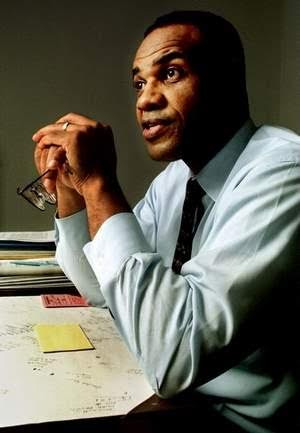
McNeil: Community has a role in fighting crime
By St. Clair Murraine
Outlook staff writer
Building an effective Sheriff department will require strong community involvement that could result in lowering Tallahassee’s growing crime rate, said the city’s former police chief.
Walt McNeil, one of four candidates running for Leon County Sheriff, also said he has a lengthy list of initiatives he’d like to put in place. However, he hedged on giving much detail over concerns that incumbent Mike Wood could move on his ideas before the election.
McNeil, who served a10-year tenure as Tallahassee Police Chief, didn’t stop short on saying how important community involvement will be, though.
“The community is vitally important,” McNeil said during a recent interview with the Outlook. “But it’s not slogans and it’s not merely having police officers involved nor having citizens’ groups that are coming together to have meetings.”
Alleviating gang-related activities also is high on McNeil’s list of priorities. He said he has a plan that could be as effective as one he put in place that led to cutting out gang clashes in the city when he was police chief in 1989.
Back then, he used a rapping contest that minimized the time gangs were on the streets. Such a concept might not work today, he said, but an approach that keeps young people occupied could be the answer.
“My point is; you have to focus on education, job opportunities and giving the youth of the community an understanding that they will be living beyond the age of 30,” he said. “I’ve got some initiatives that I will put in place.”
McNeil is running against a field with background as sheriff officers, including Wood, Tommy Mills and Charlie Strickland. Mills, who ran twice for the top job, is a longtime deputy, while Strickland is a former lieutenant.
Wood was appointed to head the top Sheriff position following the death of Sheriff Larry Campbell last year.
McNeil, 60, joined TPD a year after graduating from Southern Mississippi in 1978. He worked his way to assistant chief in 1997 before he replaced Tom Coe as chief. He resigned and in 2011 became Quincy Police Chief, serving in that position until 2014 when he decided to run for Leon County Sheriff.
A native of Laurel, Miss., McNeil was first hired by former TPD chief Mel Tucker. He praised McNeil for his diligent rise as a law enforcement officer.
Especially for his willingness to increase the number of women and Blacks in the force.
“He was always open to everybody from the policing standpoint,” said Tucker during a telephone interview. “He wasn’t a person that excluded anyone. He was inclusive and continued to do so. He has proven his leadership over and over again.”
For awhile, McNeil thought he might be interested in a football career. But the day his high school coach told him he wasn’t needed any more after his final game, his passion waned. He played two years at Jones Community College before finally giving up the game to focus on earning a criminal justice degree.
His lengthy career includes being secretary of Florida’s Department of Juvenile Justice, president of the International Association of Chiefs of Police and being in-charge of the Department of Corrections. He’s also been a consultant for the U.S. Department of Homeland Security.
McNeil said he was inspired to have a law enforcement career after experiencing race riots while he briefly attended middle school in Chicago. The answer he got when he questioned a police officer about why Blacks were treated differently from other ethnic groups involved in the riots was his inspiration, McNeil said.
“He said, ‘Young man, maybe you should become a police officer one day and maybe you can progress and do something about what I can’t do anything about,” McNeil recalled the officer telling him. “That stuck with me.”
When he received a recruiting brochure from TPD, McNeil jumped at the opportunity. His work ethic impressed Tucker.
“He stood out from the very beginning because he demonstrated he wanted to work,” Tucker said. “Then, as I started to promote him up through the ranks, I started to see the most important thing about him; nothing but straightforward transparency. There was always top integrity. That was what struck me the most.”








